List of contributions
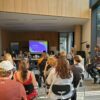
Conference: Shakin’ knowledge spaces
Moderation: Eva Krivanec
Speakers: Stupid Togetherness group (S. Komulainen, Lilo Nöske, Galyna Sukhomud), Marijana Cvetkovic, Arijit Bhattacharyya
2022
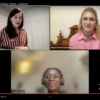
Arkivens dag 2021 – Dolda röster i arkiven (International Archives Day – Hidden voices in the archives)
Anna Tascha Larsson, Jonelle Twum, Larissa Borck
2021
Whose perspectives are saved today and whose lives are found in our archives? What strategies can we have to fill the blind spots in the archives? How can we document the present to make sure that tomorrows history books can show our diverse society?
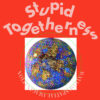
Stupid Togetherness
Silja Komulainen, Lilo Nöske, Marion Renard, Pascaline Robinot, Agca Saglam, Galyna Sukhomud
2022
The project Stupid Togetherness seeks to question existing spatial mechanisms and explore the possibilities for collaborative engagement within the urban spaces.
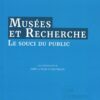
Le souci du public (Taking care of audiences)
Joëlle Le Marec and Ewa Maczek
2020
Taking care of the audiences" deconstructs the meaning of care in the cultural sector and looks at the diversity of practices underpinned by definitions of "audiences" that can diverge sharply (is the audience a target, a state, a regime of discourse, a condition?)
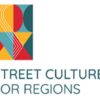
Street culture for regions
Collective
2021
A set of different resources that can help discovering, explaining and analyzing the connection between entrepreneurship and street culture
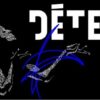
DETER
Bintou DEMBELE, Albane GUINET-AHRENS, Cathy BOUVARD, Renan BENYAMINA
2021
A learning program that promotes artistic practices coming from street culture and whose common point is to declare themselves self-taught, based on pedagogical methods that use the body, the relationship to origins and peer learning.

ALICE Epistemologies of the South Research Programme
Boaventura de Sousa Santos, Bruno Sena Martins, Cristiano Gianolla, João Arriscado Nunes, José Manuel Mendes, Maria Paula Meneses, Sara Araújo, Teresa Cunha (Team of Core Researchers, all based at CES (Center of Social Studies), University of Coimbra)
2017
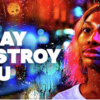
I May Destroy You
Michaela Coel
2020
Still a rare example of art that challenges patriarchy and the violence this dominant system produces in everyday life from a Black FLINTA (and in parts queer) perspective.
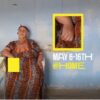
Freiburger Filmforum
Freiburger Filmforum Team
2021
The film festival is particularly interested in paying attention to groups, cultures and milieus that are often overviewed by the ethnocentric gaze of many European film festivals.
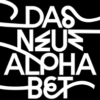
The New Alphabet
Bernd M. Scherer (director of the HKW), Olga von Schubert (research consultant of the director), Elisabeth Krämer (coordination New Alphabet School) and the whole HKW team and all the guests invited
2019
The New Alphabet is intended both as a diagnosis and a provocation: vernacular, opaque, or marginalized ways of knowing are increasingly subsumed into abstract universalizing structures. What strategies of resistance against such processes of forced alphabetization exist or could be developed? And which role do artistic methods of appropriation and creolization play in this context?”
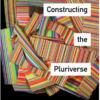
Constructing the Pluriverse: Geopolitics of Knowledge
Bernd Reiter (editor)
Zaid Ahmad, Manuela Boatcă, Hans-Jürgen Burchardt, Raewyn Connell, Arturo Escobar, Sandra Harding, Ehsan Kashfi, Venu Mehta, Walter D. Mignolo, Ulrich Oslender, Issiaka Ouattara, Bernd Reiter, Manu Samnotra, Catherine E. Walsh, Aram Ziai
2018
The contributors to Constructing the Pluriverse critique the hegemony of the postcolonial Western tradition and its claims to universality by offering a set of “pluriversal” approaches to understanding the coexisting epistemologies and practices of the different worlds and problems we inhabit and encounter.
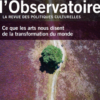
Ce que les arts nous disent de la transformation du monde (What the arts say about world transformations), Revue L’observatoire n°57, la revue des politiques culturelles
Jean-Pierre Saez, Maud Le Floc’h, Camille de Toledo, Bruno Latour, Estelle Zhong Mengual, Marielle Macé, Jean-Philippe Ibos, Lauranne Germond, Thierry Boutonnier, Thierry Dutoit, Olga Kisseleva, Benoit Peeters et François Schuitten
2021
This magazine gives the floor to artists and philosophers focused on climate change and biodiversity in relation to art. They tell us how the world is changing, the main issues and their vision on a new world they are expecting.
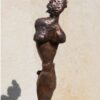
Fribourg declaration et reviewing
Patrice Meyer-Bisch and alii Civil society
2007
In 2007, the "Fribourg group” concluded that the universality and indivisibility of human rights still suffer as a result of the marginalization of cultural rights and published the Declaration of Cultural Rights as a legal framework for cultural rights.
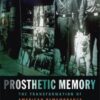
Prosthetic Memory. The transformation of American remembrance in the age of mass culture.
Alison Landsberg
2004
Landsberg claims that in modernity, mass media create the possibility for new forms of social memory: By creating an immediate, visceral and affective engagement with past events, media settings such as cinemas or experiential museums provide what she labels ‘prosthetic memory’.
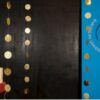
European University Film Award
2016
The project and award are based on the idea to support the transnational dissemination of European film culture, to give young Europeans an insight into different European life conditions and a sense of community through the shared enjoyment and discussion of films.
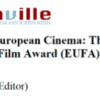
Teaching European Cinema: The European University Film Award (EUFA) Project – Dossier
Skadi Loist
2017
This reports indicates how the awareness of being part of a pan-European teaching project influences the discussions and learning experiences even of those participants that remain in their usual learning environments and national groups during the whole project.
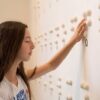
Dialog im Dunkeln – Dialogue in the Dark
Andreas Heinecke
2000
In this exhibition, sighted people gain a better understanding of how visually impaired and blind people experience the world and visitors become aware of the limits of their own perception in everyday life, which is strongly focused on visual information.
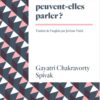
Can the Subaltern Speak?
Gayatri Chakravorty Spivak
1988
“Can the subaltern speak? What must the elite do to watch out for the continuing construction of the subaltern?” (p. 294).
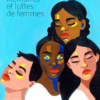
Mémoires et luttes de femmes (Memories and Struggles of Women)
Camille Caramanno, Hawa Derdessy, Matilda Fayard, Tiphaine Charrondière-Cornil
2021
A method to redefine references in terms of struggles, pride, resistance, resilience, and women’s capacities, beyond the great figures and stories usually put forward in history
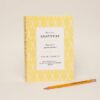
How to be a craftivist. The art of gentle protest
Sarah Corbett
2017
Corbett’s craftivism is primarily a counterexample for us. The book describes “craftivism” as a rather professional, strategical and efficient way of doing activist campaigns, for people who are able to identify and collaborate with cultural institutions, enterprises, political representatives, etc. – or for people who want to engage as a hobby.
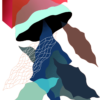
Reshape
Collaborative project with multiple involved organizations and individuals
2018
The aim of RESHAPE is to imagine an alternative to the European arts ecosystem by rethinking its instruments and collaborative models, placing them in line with artistic and social innovation and the principles of fairness, solidarity, geographic balance and sustainability.

Anthropocene Curriculum
Haus der Kulturen der Welt, List of Contributors
2013
What should a body of “earthbound” knowledge contain that traverses from the global to the local and back?
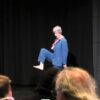
Searching for the Fountain of Age: A Danced lecture
Susanne Martin
2018
Susanne Martin proposes an alternative way of lecturing and transmitting her knowledge with a very situated approach : To look and sense her research object, the “fountain of age”, she divides it into 2 smaller fountains : the Fountain of Knowledge (talking) and the Fountain of Experience (dancing).
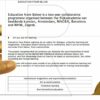
Education from below
Rijksakademie van beeldende kunsten, PEI at MACBA, and WHW Akademija
2019
The project recognises that art practices can dislocate the usual hierarchies of what should or should not be learned and that knowledge does not have to be based on accumulation, but rather on sharing and mutual learning.
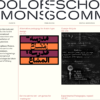
School of Commons
School of Commons Initiative located at the Zurich University of the Arts, List of Community Members
2019
The SOC community focuses on matters surrounding the production and mediation of knowledge with a common interest in self-directed practices and on collaborative and non-hierarchical forms of knowledge production

Roundtable: Undoing Discrimination? Diverse in Berlin?
Kenny Fries, Sanni Est, Miriam Camara, Rhea Ramjohn
Moderation: Samie Blasingame
2021
Are diversity measures in cultural institutions just another set of methods of solidifying what they claim to change? What are the inconspicuous formal routines, the small informal habits, the official and unofficial rules that create the feeling of running into a wall that one claims is not there?

CRAFTpedia
Project ARTCademy – University of Malaga, AGH Faculty of Management, Andalucía Emprende, Asociatia Edunet Organization Romania, Organization for Promotion of European Issues (OPEI), Comenius University, Internet Web Solutions, IHF, Institut de Haute Formation aux Politiques Communautaires asbl, IDP SAS
2018
the craftpedia presents very diverse crafts and practices, from more popular ones to very specific, place-based or endangered ones.
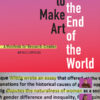
How to make Art at the End of the World: A Manifesto for Research-Creation
Natalie Loveless
2019
„[..] to do research – of any kind – is not simply to ask questions ; it is to let our curiosities drive us and allow them to ethically blind us ; it is to tell stories and to pay attention not only to which stories we are telling and how we are telling them, but how they, through their very forms are telling us.“ p. 24







